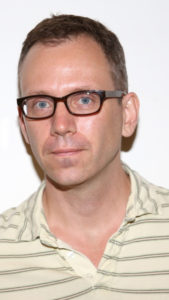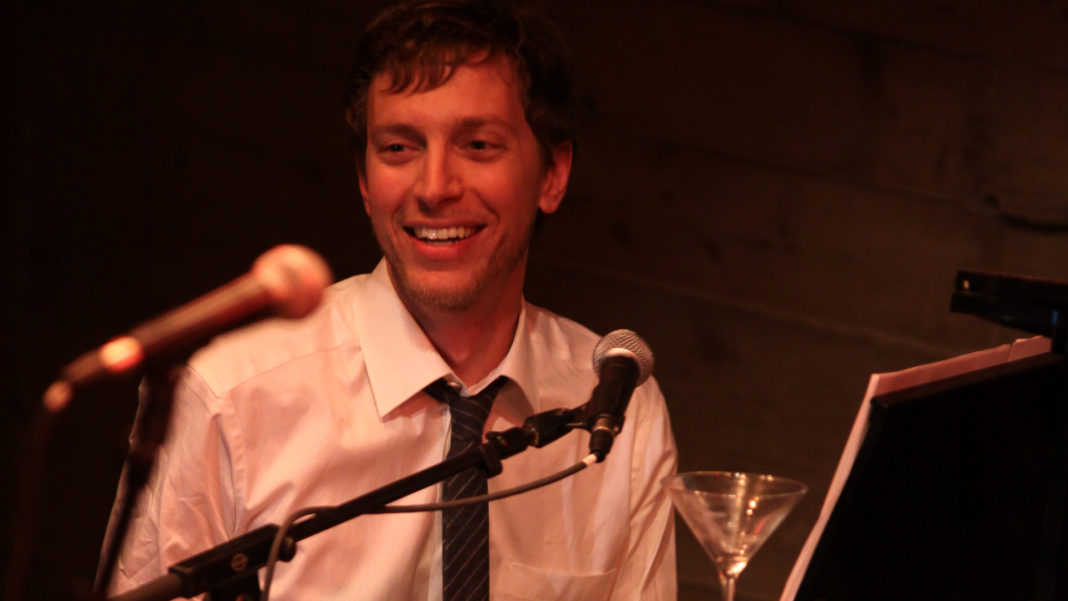Composer Michael Friedman had one musical make it to Broadway: Bloody Bloody Andrew Jackson in 2010. He thrived off-Broadway where his first produced show was 2004’s Roulette. One of his collaborators and biggest supporters was, and remains, Steve Cosson, a writer/director and the founding Artistic Director of The Civilians.

When Friedman passed away due to complications from HIV/AIDS in 2017 his friends and collaborators were shocked. While it didn’t take too much time for the shock to turn to grief, it took considerable time for the grief to turn to moving forward.
Cosson wanted to make sure that the numerous musicals that Friedman had written did not disappear from existence. In conjunction with Kurt Deutsch and Ghostlight Records, Cosson has produced five albums of Friedman’s shows. Three were released last year (This Beautiful City, The Great Immensity and The Abominables) and two more were released late this summer (Paris Commune and (I Am) Nobody’s Lunch). All five have been released under the name The Michael Friedman Collection with four more in the planning stages.
Earlier this month I spoke by phone with Cosson about Friedman, this project and whether this is Cosson’s way of saying goodbye to his collaborator and friend. Answers have been edited for length and clarity.
Upon Michael’s death, Lin-Manuel Miranda tweeted, “Aching with gratitude for the music and joy he gave us. Mourning all the music we’ll never hear.” How quickly after his passing did you realize the music and songs didn’t have to remain unheard?
I would say the idea to raise money to do this recording project came to us several months after his death. I think the first few months we were all dealing with our grief and just trying to function and work and organize a memorial service. Then once we came up for air a bit, I have a memory where it occurred to me that there are so many people that will not be able to know these songs and this music he wrote. I realized that people who were in the audiences and know Michael’s work is a relatively small group of people. We held a benefit in June of 2018 and with that raised the budget to do all the recordings.
Around the time of the world premiere of Bloody Bloody Andrew Jackson at the Kirk Douglas Theatre, Michael told the Los Angeles Times that “I never wrote a song until I was 25, which is a little embarrassing.” If that is true, that means all of this output happened in 16-17 years. How prolific was Michael?
I would bet that Michael is exaggerating a little bit with the 25 number. Michael was extremely prolific. With the albums we’ve been releasing, in addition to the several albums that were already recorded and releases from other shows before his death, once we’re done we’ll have a majority of his full-length completed musicals [recorded.]
But in addition to the musicals he wrote, he was involved in so many other shows and plays. Shows that had maybe one song in them or some incidental music that he wrote. When we were organizing his memorial service we tried to collect the list of every show he worked on in his career and tried to fit that onto the back page of the program. We had to use an extremely tiny type. He was famously always doing three things at one time.
How far along was he with projects like The King of Kong, a musical of All the President’s Men, American Pop and the sequel to A Chorus Line? Will there be an album in the collection that represents songs for unfinished shows?
That’s always something we’ve considered and I think it’s a great idea. It would require additional resources for that to happen. I’m not familiar with each of them, but I know the score for Kong was fairly well developed. We are going to do one album that is a collection of one-offs; individual songs written for other shows or for his cabaret series we did at Joe’s Pub. We haven’t finalized what’s going to be on that album yet.
At a memorial a week after he died, playwright and actress Eisa Davis asked, “I just wonder if Michael loved himself as much as we loved him.” How would you answer that question?
I think certainly Michael loved himself. I think he definitely knew that he was loved by a lot of people. He was a really exceptional friend. He was one of those rare people who managed to be the best friend to people and then also be a friendly colleague to another 1,000 people which was so evident to all of us after he died. His memorial took up the entire Public Theater building. I don’t know how many people were there, but everyone felt in some way close to Michael. It was pretty extraordinary.
You’ve stated that amongst your influences was The Carol Burnett Show. Part of the lyric of the song that closed each show says, “Seems we just got started and before you know it, Comes the time we have to say ‘so long.'” How has producing The Michael Friedman Collection allowed you to say so long, but also move on from this loss?
I know he’s not here, but I don’t feel like there is going to be a goodbye from my side. A lot of his friends and family feel the same way. We kind of still live with him. There are certain things that happen in life and Michael’s the person I have to tell this to. Obviously I don’t get a response now, but still in my mind he’s the person I share it with.
I think there’s a way in which doing these albums has helped process some of the grief, which I think is mostly a matter of being able to come together with the people who made these show with me and him. It feels like we were able to do something for him. Not that he and his work are the same thing, but his work was such a big part of his life. Being able to give life to his work and to enable it to exist in the world through these records feels like it is in service to his life the right way.
Photo: Michael Friedman (Courtesy of The Civilians)













